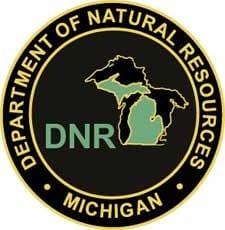

LANSING, Mich. -(Ammoland.com)- Michigan’s 21st Century Infrastructure Commission – created by Gov. Rick Snyder in March – today presented its recommendations to improve the state’s infrastructure systems and enhance the quality of life for all Michiganders.
Snyder created the Commission through Executive Order 2016-5 after he announced plans for it during his State of the State address in January.
“Our state’s infrastructure challenges are serious and wide-ranging, and we need to act with urgency to improve our infrastructure systems and make Michigan an even better place to live,” Snyder said. “Safe and reliable infrastructure is critically important to the health and well-being of the people of Michigan and will help support our growing economy in the future. Our state is poised to be a global leader in emerging technologies as we move forward in the 21st century, so it is essential that we have the infrastructure to match our goals.”
Michigan is the first state in the nation to develop a list of comprehensive infrastructure recommendations.
The Commission’s report includes recommendations for all types of infrastructure systems, including transportation, water and storm water, wastewater treatment and drainage, energy, and communications infrastructure.
The 27-member Commission – comprised of individuals representing the business, government, nonprofit, and academic communities – was chaired by Evan Weiner of Franklin, Mich., who is the COO and executive vice president of Edw. C. Levy and Co.
“The Commission was tasked with developing a visionary and bold plan. This plan is not just about what infrastructure we need to fix – it’s about where we want our infrastructure to be 30 to 50 years from now in order for it to be safer, more reliable, and more affordable for all Michiganders,” Weiner said. “Improved infrastructure systems mean better-paying jobs, healthier communities, and a stronger foundation for our kids in every region of the state. But if we keep waiting, the cost to update Michigan’s infrastructure and ensure a high-quality of life for years to come will only become more expensive.”
The report includes more than 100 recommendations to address the state’s infrastructure challenges, including:
Water recommendations:
- Ensuring Public and Environmental Health: Invest in replacement of aging water, sewer, and stormwater infrastructure.
- Water Asset Management: Perform regular assessments and maintenance of Michigan’s drinking water, sewer, stormwater, and dam infrastructure systems.
- 21st Century Water Infrastructure: Design and build water systems using the best available technologies.
- Fiscally Sustainable Pricing Models: Adopt policies that require self-sufficient and transparent budgets for water, sewer, and stormwater facilities.
- Green Infrastructure: Develop integrated and sustainable approaches to manage the quantity and quality of stormwater.
- Onsite Well and Septic Systems: Revise regulations to provide safe, affordable drinking water and wastewater disposal.
Transportation recommendations:
- Roads/Bridges: Invest in roads and bridges to ensure they are in good or fair condition and our roads, bridges, and culverts are designed to protect public health and strengthen our economy. Michigan’s road conditions and intelligent vehicle technology helps achieve our goal of zero deaths on our roads.
- Transit, Passenger, and Freight Rail: Meet the needs of both urban and rural communities by providing a robust transit network.
- Marine Freight: Construct a new Soo lock to eliminate the potential for long-term loss of 11 million jobs nationally and a $1.1 trillion hit to the U.S. economy.
- Aviation: Complete an assessment of aviation needs across Michigan to ensure our system of airports properly supports Michigan’s future needs.
- Future Mobility: Maintain our status as a global leader in intelligent vehicle technology and other emerging technologies.
- Revenue Generation Options: Reexamine existing funding mechanisms and the potential for new funding options to build strong, healthy communities for residents and businesses.
Energy recommendations:
- Resource Adequacy: Ensure adequate capacity resources are available so that Michigan residents and businesses never experience a massive outage.
- Cleaner Energy Sources: Meet 30 percent of our electric energy needs from the cleanest sources, such as energy efficiency, renewables, and natural gas.
- Electric Reliability: Reduce the frequency and duration of electric outages to ensure that customers do not experience significant disruptions in their service.
- Natural Gas Safety: Accelerate plans to replace at-risk natural gas distribution pipes to guarantee Michigan’s natural gas distribution system is safe and reliable.
- Information Security: Enable our state’s leaders and appropriate agencies to effectively communicate with infrastructure asset owners about physical and cyber security to more effectively plan for and communicate about potential threats.
- Business Attraction and Economic Development: Expand opportunities for new businesses and energy-intensive industries to choose Michigan by ensuring access to tailored energy services and competitive energy prices.
Communications recommendations:
- Making Michigan a Smarter State: Lead in the development, deployment, and adoption of new technologies and the creation of smart environments and communities.
- Improving Broadband Access and Adoption: Make Michigan a top-five state for broadband access and adoption.
- Establish the Michigan Consortium on Advanced Networks: Develop and execute a roadmap to enact a digital transformation of Michigan.
- Securing Michigan’s Digital Infrastructure: Find innovative ways to defend critical information, coordinate access and identity management, and embrace new and emerging technologies.
Public input was especially valuable to this process and Commissioners were committed to finding opportunities to engage with the public, both online and in-person at listening tour stops and stakeholder meetings around the state.
“Improving Michigan’s infrastructure today and for future generations is a responsibility all of us need to take seriously,” Weiner said. “The Commission listened to the input we received to help us develop solutions in order to keep long-term costs low and maintain a high-quality of life for every Michigander.”
The full text of the report is available at www.miinfrastructurecommission
